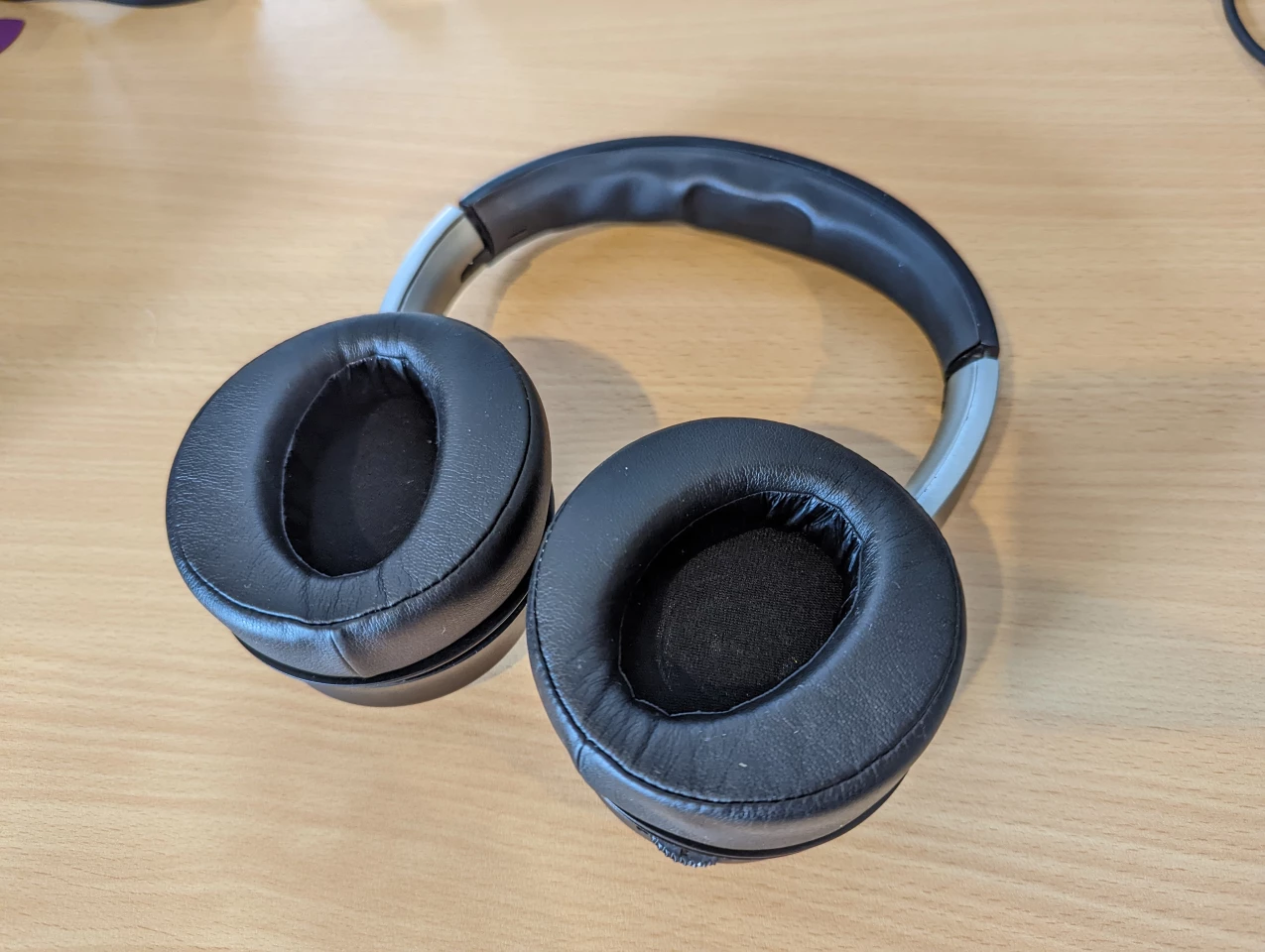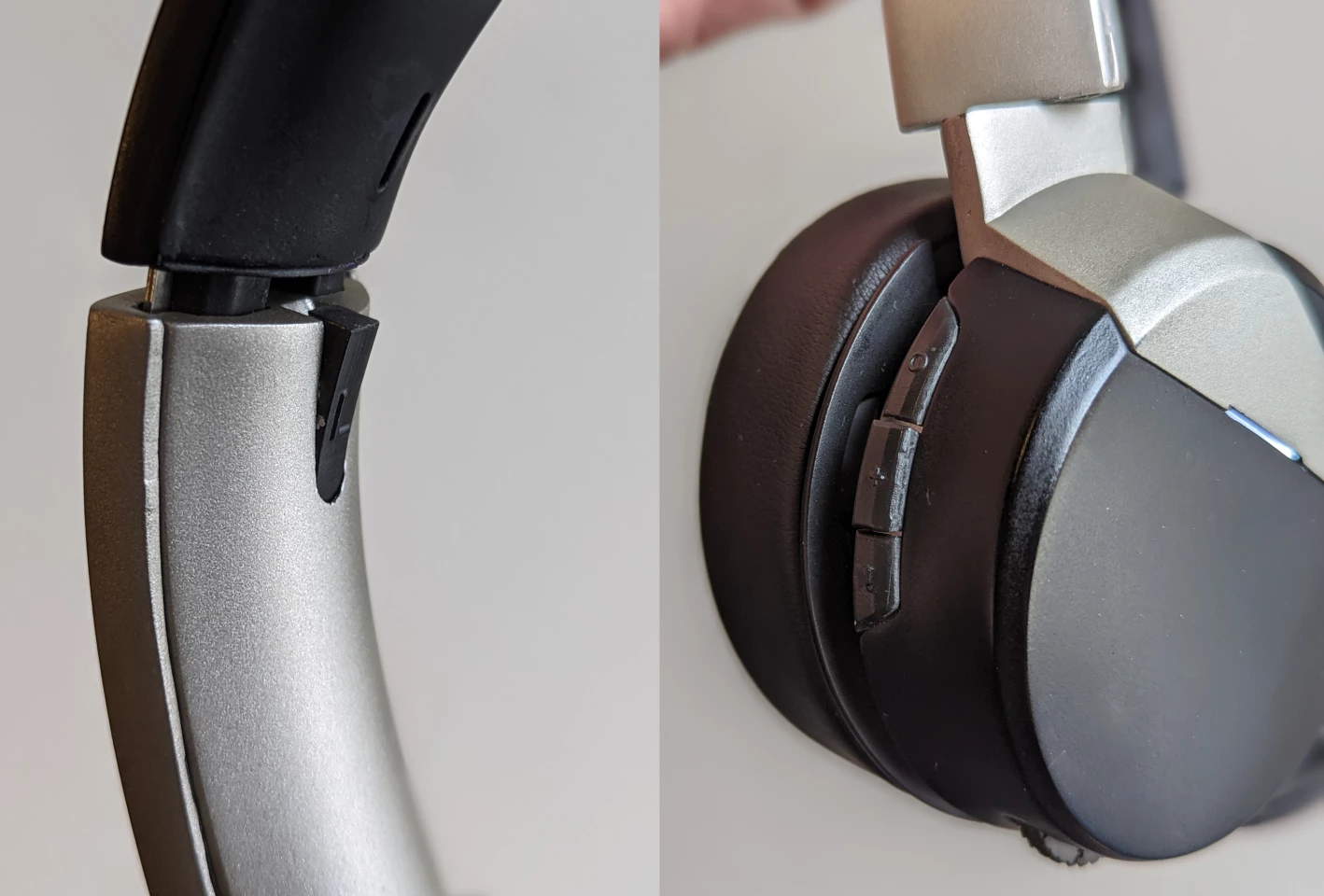"Hey," says Sonic Lamb's voiceover guy, "we're here to give you an eargasm." Sorry, I've just been rowing and I'm worn out from an Earth-shattering oargasm. But these hybrid-drive headphones do certainly take sub-bass frequencies to another level.
This Indian company has just opened up Indiegogo orders on its first set of headphones based around a "world first" speaker system that uses a traditional speaker driver to deliver most of its audio, but then splits off the low end into a separate system that transfers vibrations directly to your skin and bone. The crossover between these systems happens around 200 Hz, or if you're looking at a piano, somewhere around G below middle C.
We'd dispute the world first claim – after all, five years ago, we had our first experience with Nura's remarkable adaptive headphones, which may have used a different system, but they essentially did the same thing, sending the bulk of the audio through an in-ear speaker and the bass through a skin-conduction system built into their silicon ear pads. It was an incredibly effective device, and contributed in part to the Nuraphones' long-standing reign as the best-sounding headphones I've ever tested, and the sonic standard against all others are measured.

In terms of comfort, the Nuraphones definitely feel a little strange though, as an over-ear headphone with a protrusion that gently pokes into your ear as well. So I was interested in seeing how Sonic Lamb's system measures up.
First things first: the review units sent to us are pre-production beta testing prototypes, and they look like they've been around the block. There's some surface wear developing around the headphone pivots, the pads have begun to settle into a slightly wonky shape, the rubber in the headband has settled into a weird, uneven shape, and there's some plastic inlays starting to come loose. We'd consider all of this reasonably normal for early prototypes.
Slightly more concerning are the plastic volume and power/play buttons, which sit unevenly and frankly, as the main tactile controls on the headphones, make these things feel a bit cheap and tacky. But these all seem like simple problems Sonic Lamb can fix before mass production ramps up in February next year. "Due to prototyping limitations," the company tells us, "we had to 3D-print the headphones and paint them by hand. That's why some parts are loose or feel cheap, and the controls are tacky. We've since completed the tooling process and now have the first samples of the injection-molded parts that'll go to production."

They charge via USB-C, and battery life is rated at between 6-24 hours at max volume, depending entirely on how hard you crank the bass driver. This can be done on the fly using a little plastic scroll wheel that takes you between four "modes." Like the buttons, this thing feels cheap and plasticky. But on the other hand, all the controls are easy to find with your fingers, so in functional terms I've got no complaints whatsoever.
There's something that looks like a 3.5-mm jack in the headphones, but it's not there to give you a wired connection option; you can only get that via USB-C. Instead, these headphones ship with a little bendy boom mic that you can plug in when you're making a phone call if voice quality is paramount.
The built-in dual microphone noise cancelling array will do the job if you don't have the boom mic handy, but it's a fairly basic system; wandering near a suburban street on a phone call, traffic noise was audible to my conversation partners. Attaching the boom mic makes an immediate and impressive difference to voice quality, and if you don't mind looking like a help desk operator, you can just leave the thing there all day.

Comfort-wise they feel nice, and don't give me many reasons to take them off. They come with a hardy-feeling travel case. They connect quickly via Bluetooth, and they offer multipoint to connect to more than one device at a time. The connection is generally strong and reliable, although occasionally there's some hiccuping when you first connect. They don't feature active noise cancellation, which is something I'm surprised to find missing at Sonic Lamb's price point.
But they sell themselves on a transformative sound experience, so here we must go with our usual disclaimer. If Nura's hearing-adaptive headphones taught us anything, it's that people's hearing experience is surprisingly widely varied. Your physiology is vastly different from mine, and we each hear the world through a vastly different EQ curve. So take other people's opinions on sound quality with a hefty grain of salt; I can only review these things with the ears I've got.
Objectively, the hybrid-drive sub system does make for a powerful bass boost – indeed, it can be overwhelming when you've got the volume and the bass both cranked up – bass drum hits start to feel like small assaults to your head, and extended bass notes can feel like they rattle your teeth. As with the Nuraphones, you can definitely crank these things up until the bass becomes physically unpleasant. So you do, and then you crank them back down a bit and find a good listening level.
Running a frequency sweep, there's no obvious moment when the skin-conduction bass driver gives way to the speaker, although I will say that there seems to be a disproportionate boost to frequencies approaching the 100Hz range. Sonic Lamb says the woofer extends down as low as 20 Hz, but I can't hear or feel much until 30 Hz. Mind you, that's about when my studio subwoofer starts to wake up as well, so I think the range here is pretty solid. They certainly don't feel like they lack low end.

Subjectively, and purely based on my personal opinion, the sound of these things out of the box doesn't blow me away. They don't sound bad in isolation, but in my experience the best headphones can deliver a spectacular sense of space, air, presence and separation, a connection to the wood and wire of acoustic instruments and the atmosphere in the recording studio. I'm not getting that here; the stereo spread seems a little close and instruments a touch less distinct when I A/B these things against my Nuraphones or the ancient, wired DT770s I use in the recording studio.
It's worth noting, Sonic Lamb may be able to address this in its smartphone app, which takes you through a "two minute" audiometry hearing test in order to personalize an EQ curve to fit the way your ears work. Some of what I'm missing here is the classy sheen of a crystal clear top end, which I tend to need more of than most people thanks to years of aural abuse behind a drum set. It could be a simple fix in the app. Unfortunately, since we're at the pre-production stage here, the app won't be available for another month and a half.
Of more concern is the fact that when you run a low end-heavy track like Janelle Monae's Tightrope or Beyonce's Summer Renaissance at full volume with the bass on anything but the lowest setting, the low frequencies begin to crush and distort unpleasantly in a way other cans don't, indicating that the bass system might be getting pushed past its capabilities. Two other things worth mentioning are the balance of the bass system, which seems biased toward my right ear on these prototypes, and a very occasional pop that seems to happen randomly whether I've got music playing through the headphones or not.

"Any issues in bass reproduction," Sonic Lamb tells us, "are because the prototype parts aren't tightly fit due to tolerances in the 3D printing and vacuum casting processes. Some units have those issues, others don't. It'll certainly be resolved in the injection molded production units."
Sonic Lamb has ample opportunity to deal with these and other small issues, either in hardware or software by the time they reach customers. But I can only review what's in front of me, and as things stand, without access to the personalization app, I can't see them giving audiophiles many "eargasms." They deliver big bass, but to my ears (which are very different from yours) the effect feels a little crude compared with the way it's implemented by Nura, and the overall sound is otherwise unspectactular. I feel like these prototypes are too early to form an opinion on the final product, and the company should have a more production-ready prototype for us to check out within a month or so.
Sonic Lamb has launched its Indiegogo campaign, crushing its goals very early, so it's definitely going ahead and the company's now taking pre-orders at US$199 for an early bird discount on a retail price of US$299, a price point that puts them up against some pretty decent competition. Deliveries are set to begin in March next year. Standard crowdfunding cautions apply.
Source: Sonic Lamb (Indiegogo)
Editor's note: This piece was updated on November 14, 2020, to include more information from the company about the state of the prototypes that were sent to us.











